In December of 2017, President Tsai Ing-wen (蔡英文) tweeted: “Today on #internationalimmigrationday, I want to thank all of #Taiwan’s immigrants who have made Taiwan a better, more diverse & multicultural country. Thank you!” This has been a refrain throughout the Tsai administration.
For example, last month Kaohsiung played host to a “Presidential Office Concert” that hosted 25 groups from several different nationalities. Back in May Vice President William Lai (賴清德), speaking at the 26th Global Chinese Culture and Arts Award, said that Taiwan must preserve its “multicultural heritage.”
After a discussion of Taiwan’s ethnic and immigrant groups, Taiwan at a Glance, a Ministry of Foreign Affairs (MOFA) publication on Taiwan, smugly observes that Taiwan is an: “open-hearted, forward-looking society that has incorporated diverse elements of civilization from around the world in a distinctive and harmonious manner.”
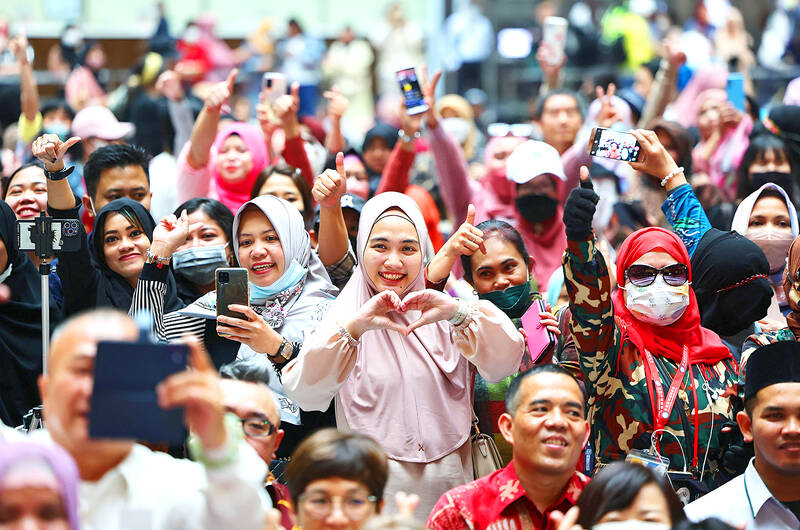
Photo: CNA
That’s the same MOFA that cruelly requests that Filipino applicants for marriage visas supply parents’ birth certificates and then rejects them for spelling errors and similar trivia. That’s the same MOFA that invents last-minute requirements for such applicants as well.
Mouthing ideas of “diversity” and “multiculturalism” is an important behavior across the political spectrum. The English Web site of the Taiwan People’s Party (TPP) has a defense of its presidential candidate Ko Wen-je’s (柯文哲) treatment of minority groups, for which he has been criticized. The Web page lists participation in the international Rainbow cities network, hosting Eid-al-Fitr festivals, indigenous language programs and certificate programs for immigrants as defenses of his positions.
A 2018 Taipei city news page about a speech he gave notes: “Speaking of Taiwan’s characteristics, he highlighted diversity, democracy, freedom and openness.”
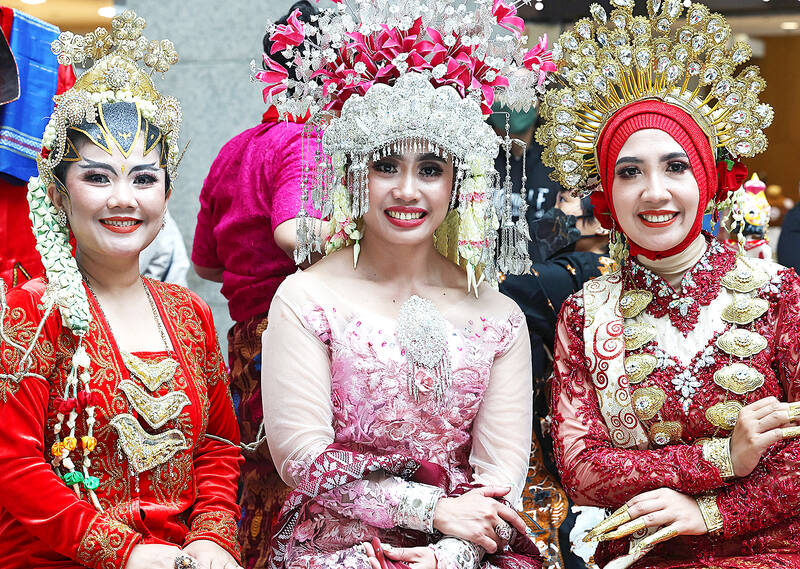
Photo: CNA
All these sweet sentiments, but what is the reality? Last week we got a special treat as two of Taiwan’s most pernicious habits, its racist othering of foreigners and its indifferent and performative regulatory apparatus, combined in a double whammy of silliness.
‘FOREIGN’ CUISINE
After a mass food poisoning incident last week, apparently caused by bad food from a Vietnamese food stall in Jhongli (中壢) in Taoyuan, Focus Taiwan reported that the Food and Drug Administration (FDA) announced that “inspections of restaurants serving ‘foreign cuisine’ will be stepped up in the coming months.”
According to media reports, an FDA spokesperson specifically instanced the famed area of Little Myanmar in New Taipei City’s Jhonghe District as a place the program might target. This signaled that what officials meant by “foreign” in this case is cuisine from places where the skins are too brown, since I doubt they will be checking McDonalds or Ruth’s Chris Steakhouse.
The checking of “foreign” cuisine was also a reassuring election-time signal that ordinary Taiwanese would not be bothered. Small businesses are already unhappy with the Administration over the losses they took during the pandemic.
Taiwan veterans will also recognize the reflexive, performative move of the government announcing tough new policies after something bad happens, instead of before. Who can forget the gutter oil scandal of 2014 (over 1,200 firms affected) and the copper chlorophyllin oil scandal of 2013? Well, government officials, apparently.
After these scandals, inspection programs were put into place, just as after the tainted starch scandal of 2013, the expired milk powder scandals over the years, the plasticizer scandal of 2011, the methyl yellow tofu scandal among others.
The problems with recycled oil in night markets, which also led to new rules, should have signaled that there were a number of other urgent issues with food preservation that could use periodic inspection.
Sadly, we have three presidential candidates who could show some leadership here. Someone’s staff should have jumped on this immediately and had their candidate put out a statement. It is telling that from the standpoint of practical politics, it would have put the ruling party on the defensive, but nobody appears to have noticed the underlying racism of the FDA stance. Laudably, Focus Taiwan’s report noted it.
Recall that ugly moment early in June of 2021, early in the pandemic, when a reporter asked Minister of Health and Welfare Chen Shih-chung (陳時中) if the spread of COVID in migrant worker dorms was due to the “ethnic habits” of the workers. Chen shot that down emphatically.
We could use some of that right now. We need one of the candidates to step up and make multiculturalism mean something more than just official hosting interesting festivals.
I have long suspected that one reason Taiwanese find Singapore a model is not only because of its orderliness, but also because it represents a multicultural state lead by ethnic Han Chinese. Sure enough, Singapore has a whole system of official multiculturalism that runs on promotion of carnivals, including “Racial Harmony Day” carnivals and other activities.
Ko in fact has long instanced Singapore as a model for Taiwan. Last year he visited Singapore, mentioning that it had been the model for his bilingual education policies. In a 2014 interview with the Straits Times, he observed that “Singapore is a very good model for Taiwan... especially given the similarities in our culture.”
The “foreign cuisine” inspection feels a lot like the crackdowns in the pandemic on migrant workers in which migrant workers were blamed for COVID-19, which was used an excuse to crackdown on them. At that time Miaoli County Commissioner Hsu Yao-chang (徐耀昌), citing complaints that “foreign caregivers take elders out in wheelchairs and then ignore them while chatting in groups,” ordered that all migrant workers, including caregivers, be locked in. After all, he said, they were 80 percent of local cases. Changhua and Nantou, two counties with long histories of police harassment of migrant workers, called for similar measures.
This reflexive attack on things foreign needs a response from Taiwanese with social influence. After all, attacks on foreignness are an alarming marker of far right populism in other countries. If the ruling party is serious about responding to rising populism, this is a good place to start — with a retraction, clarification and, above all, an apology.
Notes from Central Taiwan is a column written by long-term resident Michael Turton, who provides incisive commentary informed by three decades of living in and writing about his adoptive country. The views expressed here are his own.
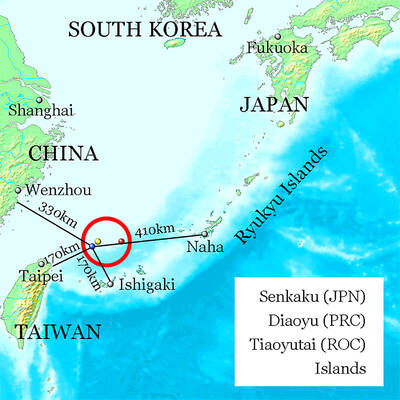
Last week gave us the droll little comedy of People’s Republic of China’s (PRC) consul general in Osaka posting a threat on X in response to Japanese Prime Minister Sanae Takaichi saying to the Diet that a Chinese attack on Taiwan may be an “existential threat” to Japan. That would allow Japanese Self Defence Forces to respond militarily. The PRC representative then said that if a “filthy neck sticks itself in uninvited, we will cut it off without a moment’s hesitation. Are you prepared for that?” This was widely, and probably deliberately, construed as a threat to behead Takaichi, though it
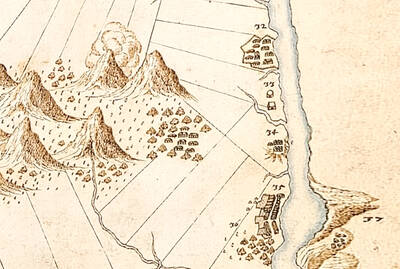
Nov. 17 to Nov. 23 When Kanori Ino surveyed Taipei’s Indigenous settlements in 1896, he found a culture that was fading. Although there was still a “clear line of distinction” between the Ketagalan people and the neighboring Han settlers that had been arriving over the previous 200 years, the former had largely adopted the customs and language of the latter. “Fortunately, some elders still remember their past customs and language. But if we do not hurry and record them now, future researchers will have nothing left but to weep amid the ruins of Indigenous settlements,” he wrote in the Journal of
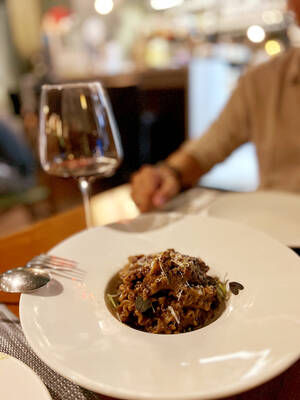
Even after years in business, weekend tables here can be booked out a month in advance. The price point far exceeds its competitors. Granted, expectations are soaringly high, but something here failed to hit the high notes. There are a few telltale signs that a restaurant relies solely on outstanding food to create the experience, no gimmicks or distractions needed. La Mole is such a restaurant. The atmosphere is food-forward, with an open kitchen center stage. Our tables are simple; no candles, no dim lighting, no ambient music. The menu is brief, and our waiter directs most
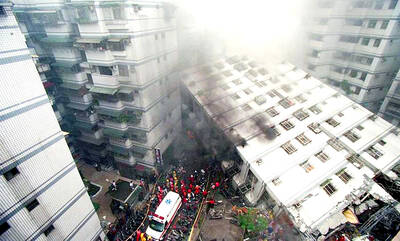
If China attacks, will Taiwanese be willing to fight? Analysts of certain types obsess over questions like this, especially military analysts and those with an ax to grind as to whether Taiwan is worth defending, or should be cut loose to appease Beijing. Fellow columnist Michael Turton in “Notes from Central Taiwan: Willing to fight for the homeland” (Nov. 6, page 12) provides a superb analysis of this topic, how it is used and manipulated to political ends and what the underlying data shows. The problem is that most analysis is centered around polling data, which as Turton observes, “many of these